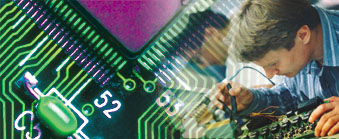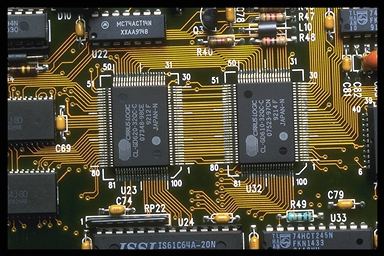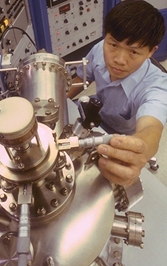What do you do when everything else fails?


We can do any type of programming for manufacturing you'd like from our offices in San Francisco or at your site.
The software API has written ranges from simple centralized user interfaces to full mil-spec data reporting and production management applications. These systems include stand-alone machines and manual assembly areas, as well as production planning and inventory systems, CAD/CAM data interfaces, SPC and SQC functions, WIP tracking, and lot-size-one control. These systems also include full manufacturing execution systems (MES) providing full horizontal and vertical integration, connecting the shop floor and the enterprise.

The first thing to note in manufacturing systems development is that often the lowest overall cost of ownership with the highest productivity of both the software and business comes from a custom system.
Traditional manufacturing culture tends to buy flexible packaged software that meets 80% of the need and then lives with the functionality gap. This results in relatively stable IT costs but a slew of other problems including no competitive advantage. At its highest level manufacturers may then modify that package in some way. While the now "packaged" system will then do what the manufacturer wants, the result is both very high development and maintenance costs.
The solution to tailoring the business and process practices of a manufacturer is a custom system. It is important to note that custom development does not necessarily mean starting from a blank page or using 2GL tools. In its best case it means having talented programmers, fluent with the application type, using productivity tools with extensive contact with the managers and users of the system. This is API's approach.

At API we are seeing the culture change as more companies think about systems infrastructure to gain competitive advantage. Working with these customers we then use tools and system fragments to build systems that 1) reduce the effort implementing systems, 2) enhance maintainability, and, most importantly 3) improves the competitiveness of our customers.

While the meaning of competitive advantage changes from customer to customer it still involves a mix of the following elements:

While using a building block approach with good commercial tools to build a custom system generally means an overall lower cost of ownership than with closed "packaged" systems, there are risks. At API we are able to control these risks. This is because we use excellent, effective tools in the hands of experts. We know that systems must be able to conform to changing business environments and always take this into account when designing systems. This can be weighed against the astronomical cost of modifying, even slightly, "packaged" systems.
In the end, the customer gets exactly what they want and hence use it more effectively across the enterprise.